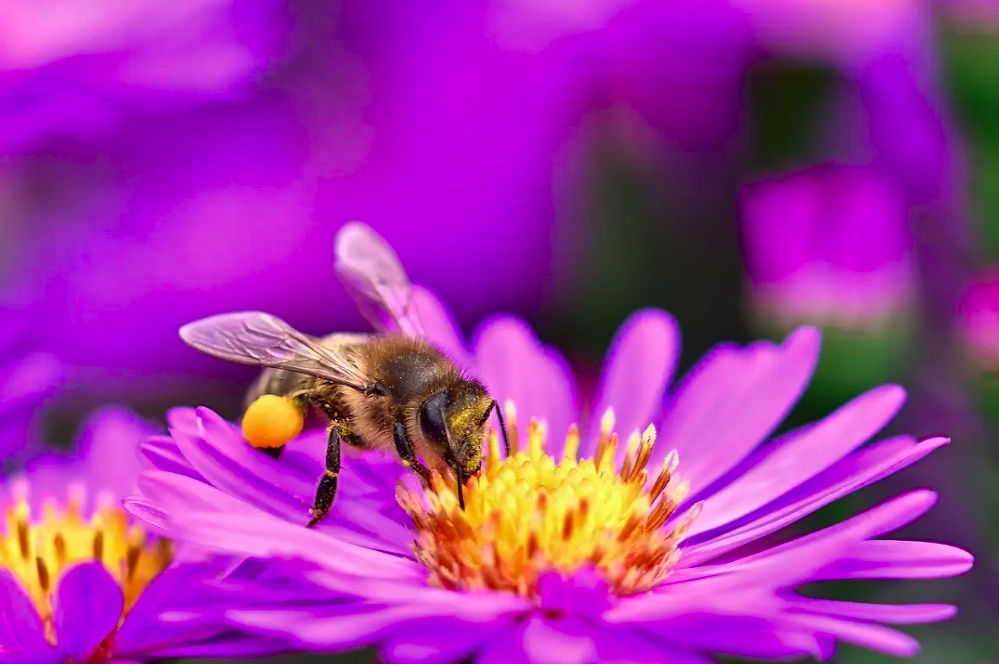|
|
GRANTS
|
Catalyst Grant 2024
|
 |
Monarch butterfly visiting Joe-Pye weed in Tom’s backyard.
Photo by Tom Chase
|
Early in 2024, we took a big step forward in executing on our “More Programs, Better Practices” strategy by launching the Catalyst Grant program. Open exclusively to our Practitioners Circle, these grants catalyze “Better Practices'” within microhabitat programs.
The priorities for the 2024 grant round were to increase equity and lower barriers for all programs. We are delighted to report that eight projects were selected, with approximately $173,500 committed. Each of these projects will bolster new, emerging and established programs in unique ways. A condition for every grant is that project learnings are shared out with other practitioners and the wider world, thus benefiting the microhabitat movement.
|
|
Learn more about the 2024 grant recipients
|
|
|
|
|
PROGRAM SPOTLIGHT
|
Eastside Pollinator Garden Project
|
 |
Anna’s Hummingbird.
Photo source: Pixabay
|
|
|
Introducing the Eastside Pollinator Garden Project, one of the newest members of our MPI Practitioners Circle. Housed within the Eastern Sierra Land Trust, the program operates within a largely rural and agricultural landscape, adding breadth
to the largely urban and suburban microhabitat programs we have encountered to date.
(The MPI Practitioners Circle comprises community-based programs—typically nonprofits and local agencies—that provide on-site recommendations for microhabitats, and undertake ongoing efforts to re-naturalize multiple spaces within a community. Know of programs that might be a good fit? Send them our way!)
|
|
Learn more about the Eastside Pollinator Garden Project
|
|
|
|
|
RESEARCH
|
How Fast are Native and Non-native Species Travelling?
|
 |
Landscape
Photo by Tripti Thomas-Travers
|
This article highlights sobering new research that quantifies the relative rates of migration of native versus non-native terrestrial plant and animal species. The data implies an urgent and compelling case for microhabitats and assisted migration.
|
|
Read more
|
|
|
|
|
RESEARCH
|
Bee Health, Nutrition and Conservation
|
 |
What pollen is most nutritious for a bee?
Photo source: Pixabay
|
A new study examines the nutritional benefits of pollen from 57 North American plant species for bee health. Researchers identified and recommend plants that provide optimal protein-to-lipid ratios crucial for wild bee nutrition. They emphasize the importance of diverse pollen sources, as no single plant species offers all necessary nutrients. This research aims to guide conservation and reduce pesticide use to support bee populations facing significant threats worldwide. Our note: This research focuses on bee nutrition, not ecosystem functions such as pollination services nor the conservation of native plants. Thus, not all plants they recommend are native. Those of us who create
microhabitats do think of ecosystem services and may wish to consider how those goals and bee health can be accommodated with native plants.
|
|
Bee curious
|
|
|
|
|
What is a “Microhabitat Program”?
|
Microhabitat programs restore ecosystem function in the fragmented landscape be it for people or biodiversity or both. Examples include community-scale efforts to create backyard habitats, bioswales in urban areas, pollinator patches along agricultural margins and more.
|
|
Learn more about the Microhabitat Program Incubator
|
|
|
|
|
Interested in supporting our work?
|
Donate today. Your support allows us to provide pro bono services to community-based nonprofits to help them create and share community-scale climate adaptation strategies—such as microhabitat programs.
|
|
|
|
|
|
|

|
We help community-based organizations invent, share and grow replicable, climate adaptation solutions. Our flagship project is the Microhabitat Program Incubator.
|
|
|
|
|